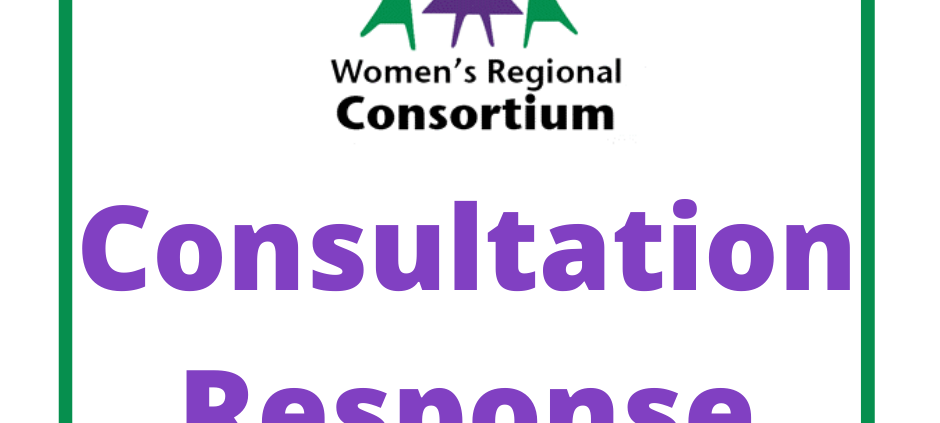The Women’s Regional Consortium is concerned by the proposals contained in this Green Paper and we believe that they seek to remove the dignity of disabled people. Having sufficient income to live a dignified, healthy life is essential for all people and we believe these proposals seek to reduce the amount of money paid out on PIP regardless of the impact on disabled people’s lives.
Scope research shows that life costs a lot more for disabled people including people with mental health conditions. It shows that disabled people need £975 more a month, on average, to have the same standard of living as a non-disabled person.2 However, because of welfare cuts and austerity policies disabled people have already lost average benefit payments of around £1,200 a year.
A report into destitution in the UK by the Joseph Rowntree Foundation4 showed that there are strong links between disability and destitution. This research showed that almost two-thirds (62%) of destitute survey respondents stated that their day-to-day activities were limited because of a chronic health problem or disability. “There were widespread reports that the process to claim disability benefits, such as Personal Independence Payments, could be long and arduous. Sometimes this had detrimental impacts on interviewees’ mental health, as well as very substantial effects on their material well-being.”
Research and personal testimonies have shown that the PIP process is already failing disabled people. We believe that implementing the proposals in the Green Paper would make this situation even worse contributing to higher levels of destitution for disabled people. The Women’s Regional Consortium are in agreement with colleagues in Disability Rights UK who said: “The social security system should be an essential public service that ensures everyone has access to the right support when they need it. But after years of dire cuts and reforms, it has been torn apart.”
A number of reviews into PIP in Northern Ireland (see paragraphs 2.9 to 2.13) have shown widespread concerns about the PIP process and the need for reform. Welfare Supplementary Payments are in place in Northern Ireland which highlight the need for financial support for disability within the social security system. We need to see investment in the social security system to ensure that it provides the safety net of support that disabled people rely on and in the long term reduces the pressure on other services, including the health service, which is so impacted by inadequacies in social security support for disabled people.
We point the Government to the following statistics for Northern Ireland which provide important considerations around levels of disability, benefit dependency and socio-economic issues. These considerations mean that Northern Ireland is likely to feel the impact of the proposals contained in the Green Paper much more severely.
- Northern Ireland has traditionally had a much higher proportion of people claiming disability benefits than other areas of the UK. Prior to the introduction of PIP in 2016 around one in nine people in Northern Ireland (208,760 people) were on DLA. At that time Northern Ireland had proportionately twice as many people claiming DLA compared to the rest of the UK. “This higher uptake in NI remains unexplained, though poorer mental health, possibly resulting from the civil unrest known as The Troubles, might be significant.”
- 16% of the Northern Ireland population are in receipt of disability benefits.
- Northern Ireland has higher levels of benefit dependency than other parts of the UK with the Consumer Council for Northern Ireland reporting that income from social security benefits is at 71% in Northern Ireland compared to 60% in the UK.
This is an excerpt from our Response to: Modernising Support for IndependentLiving: The Health and Disability Green Paper.


